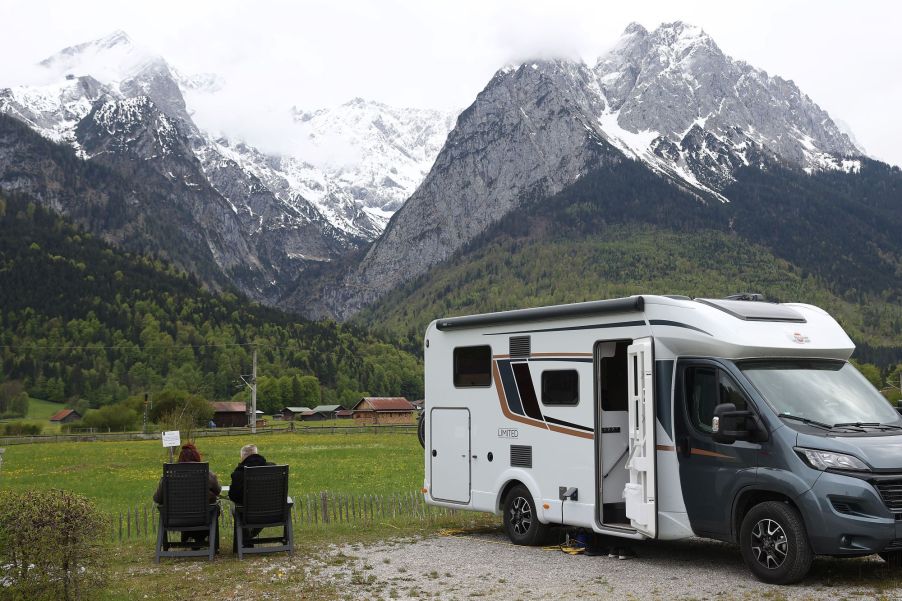
Do Camper Vans Hold Their Value?
Not everyone who owns a camper van in America lives in it full-time. A lot of people do, however. Whether “vehicularly housed” or a part-time road trip vacationer, everyone who owns a camper van probably wonders if it will hold its value over time.
Which ones tend to hold their value best?

In 2021, a bare-bones RV motorhome can be bought for less than $10,000, but most go for a lot more. Today, the price of a Class B or Class C motorhome averages between $100,000 to $150,000, while a brand-new fully equipped Class A motorhome can cost more than $500,000, says The Wandering RV.
Due to their smaller size, camper vans tend to cost somewhat less than RV motorhomes with a general price range between $37,665 for a Nissan-based Caravan Outfitters Free Bird and $161,000 for an Airstream-outfitted Mercedes Sprinter camper van with all the bells and whistles, explains Trail and Summit. You may even find a pop-up camper van for a mere $16,900, says Camper Report. As you might expect, Mercedes campers hold their value best, especially if they are well-maintained.
Every year since 2009, recreational vehicle sales have gone up. The RV industry, which includes makers and sellers of large Class A, Class B, and Class C motorhomes, non-motorized trailers, and mid-size camper vans, currently contributes some $50 billion to the U.S. economy annually. This trend bodes well for dealers and manufacturers, but are they a worthwhile investment for the average vacationer?
What devalues a camper van?
The relatively affordable Caravan Outfitters Freebird combines value with just enough living space to accommodate two adults. Buy one, and you’ll need to switch the dinette area to a bedroom every night of your camping trip, but the savings on the front end may be worth it.
If you’re looking for a camper van that is practically guaranteed to hold its value over time, opt for a Mercedes-Benz Sprinter or Metris. Each comes off the production line ready for cargo but can be converted into a fashionable home-away-from-home with a walk-through cabin and plenty of sleeping space.
Take good care of your camper van, and you might be able to sell it for around as much as you paid for it. Watch out for depreciation, though. According to NADA Guides, things that can contribute to camper van depreciation include but are not limited to:
- Time
- Class type
- External damage
- Deferred maintenance
- Missing upkeep records
- Water damage
- Broken or old appliances
- Outdoor storage
Help your camper van hold its value
Of the three classes of RV evaluated by NADA Guides of J.D. Power, Class C takes the longest to depreciate. At 33 feet in length, Class C vans are larger than an average camper van but not as large as a tour bus. A new Class C RV can be expected to depreciate around 38% in the first five years, whereas a bigger Class A RV depreciates nearly that much in a mere three years.
Don’t store it outdoors if you want your camper van or RV to keep as much value as possible. Along with age, outdoor storage is one thing that causes accelerated depreciation, says NADA Guides. Keep your camper stored away from weather extremes, and you may avoid pest infestations, as well. If the stove and fridge are worse for the wear, replace them with newer appliances to maintain the value of your camper. Treat your camper right, and it may hold its value for many years to come.


